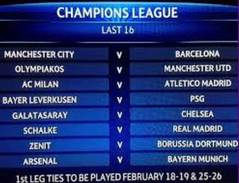
In November 2013 I wrote a piece on the predictability of the Champions League and how European football’s premier competition was potentially becoming boring. One could almost predict match outcomes.
The need for unexpected outcomes is what makes sport so enthralling. Economists call this competitive balance. Competitive balance can be applied to a single match to assess how likely a particular outcome is or employed over an entire season to consider how well a league is balanced.
Rottenberg (1956), regarded as the first ever application of economics to sport, wrote that attendance at baseball games was “a negative function of the…dispersion of percentages of games won by the teams in the league”. This quote is at the heart of what is know as the uncertainty of outcome hypothesis (UOH). Ireland's victory in Paris in the Six Nations last weekend was so good because it was uncertain, even with seconds to play.
Since Rottenberg (1956) competitive balance has been extensively examined for a wide variety of sports such as basketball (Berri, Brook, Frick, Fenn and Vincente-Mayoral, 2005), tennis (del Corral, 2009), college football (Eckard, 1998), hockey (Fenn, von Allmen, Brook and Pressing, 2005), association football (Forrest, Simmons and Buraimo, 2005), baseball (Fort, 2005) and rugby union (Owen and Weatherston, 2004).
Today’s champions league quarter final draw, will for the first time since the competition moved to its current format in 2003-2004, contain the eight seeded teams from the last 16 draw. In other words, all eight group winners from the group stages are still in the competition. Five of these were Pot 1 seeds in the original Group Stage. Given that the eventual champions have come from Pot 1 since 2006, it leaves five potential winners; Barcelona, Bayern Munich, Chelsea, Man United or Real Madrid.
While the Champions League still has the aura of never being successfully defended, the concentration of group winners reaching the quarter finals had never been 100% before. This could be the start of a worrying trend. Competition is vital and needs to be protected otherwise the Champions League may really become predictable.
 RSS Feed
RSS Feed